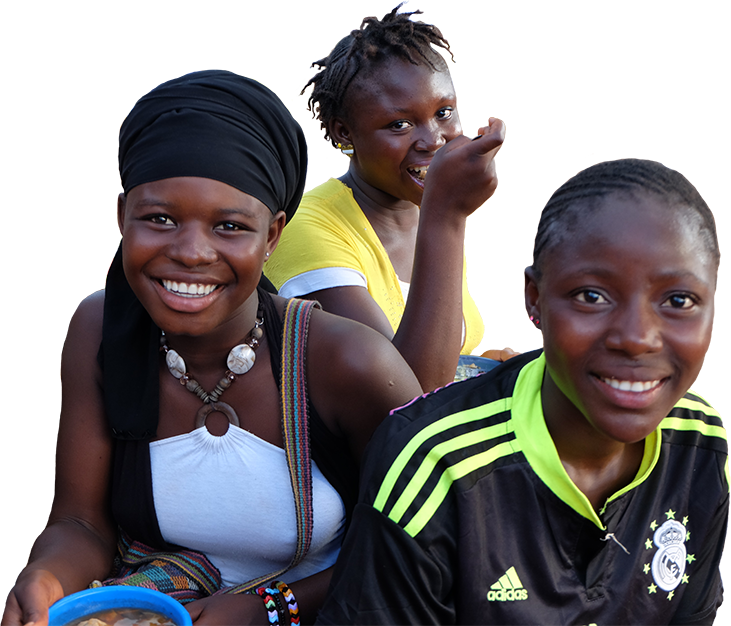Adolescents are uniquely positioned to contribute to the design and delivery of effective programs and services. Policymakers, program managers, and service providers need to include adolescents as much as possible when designing, planning, implementing, delivering, and monitoring youth-responsive nutrition programs and services. If you have examples of policies, programs, services, guidance, evidence, and tools related to the engagement of adolescents in the design, implementation, delivery or evaluation of nutrition programs and services, please send them to info@advancingnutrition.org.
We found 57 resource(s)
Children's and Adolescents' Characteristics and Interactions with the Food System
Journal Article published by Academic Journal in
This article describes age-specific characteristics that inform how children and adolescents interact with their food systems and how that relationship influences their diets, using the socio-ecological framework. It highlights the fact that various interpersonal, intrapersonal, and environmental factors influence the diets of indivduals across…
Adolescent Nutrition Toolkit (India)
Guideline/Guidance published by Lady Irwin College, NCEARD, UNICEF in
This toolkit includes a technical report about adolescent nutrition in India, "Adolescents, Diets, and Nutrition: Growing Well in a Changing World," a recipe book for packed lunches and snacks for adolescents in the Indian context, and a pamphlet for adolescents about nutrition, eating practices, and anemia.
Our First Baby: Flipbook
Information, Education and Communication Materials published by Save the Children in
This flipbook accompanies the Facilitator’s Guide for Our First Baby: Health Education for Adolescents Who Are Pregnant Or First-Time Parents. It is designed to be used by a facilitator in group sessions in the community.
Youth Leaders for Nutrition Advocacy Toolkit (Advocacy Guide and Adolescent Nutrition Briefs)
Training Material published by Global Alliance for Improved Nutrition (GAIN), Save the Children, Youth Leaders for Nutrition in
Created through a participatory and collaborative process with SUN Youth Leaders for Nutrition, this toolkit helps youth to design, develop, and implement an advocacy strategy for improving adolescent nutrition. The toolkit includes a step-by-step guide, advocacy planning checklist, briefs on nutrition issues, briefs on issues that impact…
Adolescents: Agents of Change for a Well-Nourished World: GAIN Convening Paper Series no. 2
Occasional Paper published by Global Alliance for Improved Nutrition (GAIN), WHO in
This report summarizes a consultation that convened researchers, practitioners, policymakers, youth organizations, and adolescents from Pakistan, Bangladesh, Indonesia, and Zambia. The report identifies themes that emerged from the consultation, including priorities for adolescent nutrition, lessons from other sectors, and key considerations for…
Aksi Bergizi: Starting a Healthy Life Now for Today's Adolescents
Training Material published by Ministry of Health in
This toolkit includes an impact evaluation of the Aksi Bergizi pilot programme, facilitator and student guides, the social and behavior change communication strategy, and additional intervention resources (available in Indonesian only).Aksi Bergizi includes three evidence-based interventions including weekly iron–folic acid supplementation, school…
Using a Gender Lens to Understand Eating Behaviours of Adolescent Females Living in Low‐Income Households in Bangladesh
Journal Article published by in
This study conducted qualitative research on the individual, social, environmental, and structural factors that influence the eating behaviors of female adolescents in low‐income families in urban and rural settings in Bangladesh. The study's recommendations relate to the age of marriage, adolescent pregnancy, schools meals for adolescents,…
In‐Depth Assessment of Snacking Behaviour in Unmarried Adolescent Girls 16–19 Years of Age Living in Urban Centres of Java, Indonesia
Journal Article published by in
This study involved qualitative research in five urban sites in Java, Indonesia to examine individual, social, environmental, and macrosystem factors that affect snacking among unmarried girls ages 16 to 19. The study's findings emphasize the importance of behavioral change strategies to modify the eating and activity patterns of adolescent…



